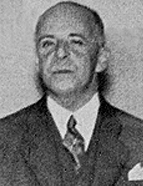

This case never reached a definitive conclusion, and many historians have attempted to identify and name the instigators of these crimes, drawing on evidence that suggests both radical republican and conservative monarchist motivations.
The name of Gastão de Mello de Mattos thus appears to have been distanced from these events. However, revisiting this period in his life is essential to highlight that his political orientation was reflected not only in his friendships at the academy — with figures such as Count Tovar, the Count of São Paio, and Caetano Beirão — but also in the numerous opinion pieces he contributed to nationalist and monarchist periodicals, such as Feira da Ladra and Acção Realista . The latter served as a critical voice against the Republic and Liberalism, evolving into a kind of patriotic, doctrinaire, traditionalist, and integralist manifesto, featuring contributions from figures such as Caetano Beirão, Castelo Branco-Chaves, and Rolão Preto. Mello de Mattos contributed to several issues in a column dedicated to the "Military Tradition" (G. M. Mattos, "Tradição…" [Tradition...], 1924). In line with Lusitanian Integralism, he highlighted the decline of the present compared to the past, praising the monarchy's accomplishments, particularly in military matters. He argued that peace had led to complacency within the army, a condition he saw as potentially dangerous for Portugal. He also addressed conflicting political concepts, aligning himself in defence of one side: “Liberalism and Nationalism” (Idem, "Liberalismo…" [Liberalism...], 1924) and "Reactionaries and Conservatives" (Idem, "Reaccionários..." [Reactionaries…], 1925), among others. Luís Reis Torgal noted that the influence of Lusitanian Integralism remained evident in Mello de Mattos's scientific studies, particularly in his analysis of historical processes such as the Restoration (L. R. Torgal, Ideologia política… [Political idiology...] , 1981, pp. 97 and 98). In contrast, Fernando Dores da Costa observed that, in the works Mello de Mattos published in 1940 for the centenary celebrations of the Restoration, he managed to restrain the exaltationist and nationalist tone present in those works, unlike others (F. D. Costa, “Interpreting the Portuguese…”, 2005, p. 2). Aligned with this movement, his anti-Iberianism is also evident in his public and scientific activities. He was a member of the 1st December Commission of the Sociedade Histórica da Independência [Historical Society of Independence], an organization that included military personnel, intellectuals, professors, and historians such as Eduardo Brazão, Fidelino de Figueiredo, and António Ferrão, all of whom contributed significantly to patriotic and anti-Spanish rhetoric (S. C. Matos, Iberismos..., 2017, pp. 120-124).
This work is financed by national funds through FCT - Foundation for Science and Technology, I.P, in the scope of the projects UIDB/04311/2020 and UIDP/04311/2020.
